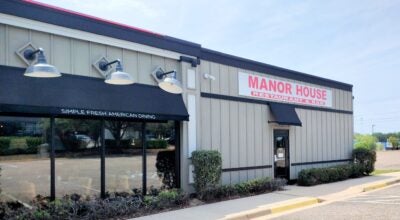Could county roads become gravel?
Published 11:44 am Monday, March 8, 2010
Butler County’s road infrastructure is crumbling, said Commissioner Lynn Harold Watson, and the commission is going to have to find some way to address that problem or risk road failures in the very near future.
Watson, who represents District 5, said Butler County is facing the possibility that addressing issues on its roadways will require plowing up those roads and laying gravel down instead because there is not an adequate funding mechanism in place to resurface asphalt roads.
“It’s headed down that direction,” agreed County Engineer Dennis McCall.
The problem is not unique to Butler County or Alabama. Some county governments in Indiana, Vermont, Pennsylvania and Michigan have already converted roads from paved to gravel due to the high cost of asphalt. But it is also a gun county commissioners have been staring down the barrel of ever since the early 1980s, when the state legislature approved allocating the bulk of the gasoline tax to the state department of transportation. That left Butler County officials having to maintain nearly 450 miles of paved and unpaved roads as revenue dwindled and expenses rose. Highways classified as “major collectors” because of a high volume of traffic are eligible for federal funding, but that accounts for only an estimated 100 miles of roads inside Butler County.
Prior to that tax redistribution, Butler County employed over 200 people in its county road department, said McCall.
“They were as good or better then any contractors we work with…they were paving roads, they were putting down seals,” said McCall. “All of a sudden, after that gasoline tax redistribution, you saw counties cutting from 200 employees back to 100…then, they started cutting and cutting and cutting. Once that happened it changed the ways counties operated. When you got around to the late 70s and 80s you saw counties selling their equipment.”
The county currently employees 36 people in its road department, said McCall, and the roads it’s responsible for have long since become outdated. Rural roads in counties like Butler were paved primarily in the 1950s under then-Governor “Big” Jim Folsom.
“50 years is about how long a road will last, provided it has proper maintenance,” said Watson. “The warranty ran out about five or six years ago, if we had maintained them. And we haven’t maintained them.”
McCall said routine maintenance on asphalt roads was halted “around 1980.”
“In the life of a road, it starts cracking and you put a chip and seal on it…and those are common practices,” said McCall. “Those stopped, and there has not been another one since.”
Following a visual inspection of some of the worst roads in the county last week, Watson was blunt in his assessment:
“These roads are going to hell and back,” he said. “People, I’m telling you this: five years from now your major roads will be gravel, unless we decide to do something. You can sit back and say ‘the state is going to come in’…they’re not coming…it tears me out of my frame to know there’s a cemetery where my momma and daddy and myself is going to be buried and I can’t get to it because the damn roads have to go back to gravel.”
Watson favors a sales tax increase of a half-cent. He said that would not solve the road problem but it would help the commission begin addressing it.
Commission Chairman Jesse McWilliams (Dist. 2) said he would rather work with the legislature to have the gas tax equally distributed among Alabama’s rural counties.
“If it (half-cent sales tax increase) would help cure this problem that would be something,” he said. “But my feeling is, if this tax is put on, then the citizens of this county should be the one to vote it in.”
McWilliams said surveys mailed out and returned in November indicated taxpayers would not support a tax increase for roads, even though a large number of responders said road conditions was the number one problem in the county.
“How do you go in and mandate to the people a tax that’s not going to fix a problem?” said McWilliams.
Watson said the tax would be “100 percent” more than what the county is currently doing to address issues with the roads. He said he believed the commission should have the tax increase pushed through the state legislature because he felt a half-cent sales tax increase would happen in either Georgiana, Greenville or the county school district “within the next two years.”
“And I don’t believe any of them needs it as bad as this county does,” he said.





